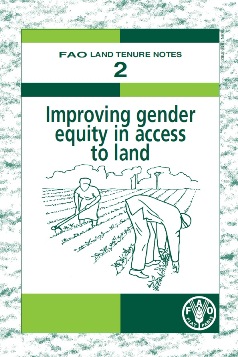Improving gender equity in access to land
Securing the rights of both women and men to land is essential for sustainable rural development, social equity and economic growth. Today women are the major agricultural producers at the household level. Yet their rights are often marginalized and can be lost in development projects unless gender-inclusive practices are implemented. This guide focuses on gender relations and how their structure may affect access to land.





